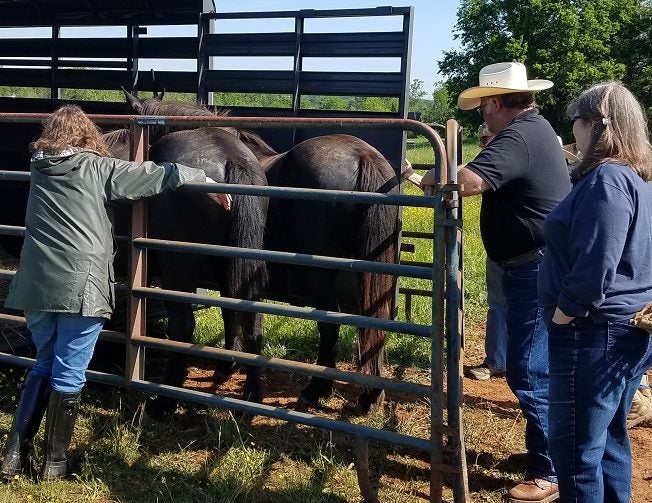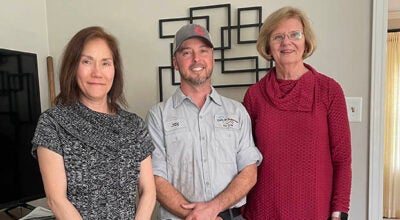Helping Hands: White Bird completes multi-year rescue project
Published 6:47 am Tuesday, June 6, 2023
|
Getting your Trinity Audio player ready...
|
Last December, we shared the story of White Bird Appaloosa Horse Rescue. If horses need help in Prince Edward, Cumberland or Buckingham counties or the surrounding areas, if they’ve been abandoned, beaten or in general need to recover, White Bird is the place for them to get treatment. Now the operation has just completed one of it’s largest and most unique projects.
Several years ago, a land owner in Northern Virginia reached out to White Bird owners and operators Jorg and Tom Mayfield. A herd of Appaloosa and crossbreed horses on the property had, over a period of time, become neglected and turned semi-feral. This breeding herd of approximately 60 horses presented an unusual challenge for rescuers in that they were completely unhandled, located on a large property with poor vehicle access and few fences, and on a farm that straddled two counties.
It was too big a job for White Bird to tackle on their own. As they explain, it’s not even something as simple as recruiting people from the community to help. It takes time and training to learn how to handle feral or even semi-feral horses, Jorg and Tom point out. That meant getting other rescues and trainers involved. Over several years, White Bird’s staff coordinated with more than 100 individuals, including 17 rescues in six states.
“This didn’t take a community, it took an army of people with big hearts, energy and skill,” Jorg said.
What the group found was a herd in bad shape. As Jorg and Tom explain, when rescuers arrived that first time, they found many of the horses were starving and injured. Some were blind. Some were giving birth, while others were dying. The horses had to be caught, loaded, transported, and rehabilitated by the volunteers and organizations who stepped forward to help.
Rescuing the herd
That’s exactly what the group did. Sometimes one at a time, they would collect members of the herd, treat and relocate them. The horses received evaluations and medical care as needed, before finding a temporary sanctuary home. And that part of the project wrapped up on Sunday, May 14, as the White Bird staff were able to collect and relocate the final two horses from that herd to a sanctuary in Georgia.
“We are deeply grateful to the equine rescue community who so seamlessly worked together with such energy and compassion to perform the removal of this challenging herd and provide safe havens to these horses,” Jorg said.
As for what happens next, that depends on the horses. Some will be available for adoption into new homes, organized by the multiple groups who collected them. Others prefer to live a bit more wild and so they’ll be given permanent sanctuary at White Bird or some of the other organizations.
More about White Bird Appaloosa Rescue
The Mayfields chose the name for their sanctuary based on the Appaloosa horses, a beautiful breed known for skill, beauty, and endurance that has long been protected by Native Americans. When settlers invaded the Palouse river region, Chief White Bird led the horses and tribe members to safety. White Bird Appaloosa is an homage to the fighting and persevering spirit of Chief White Bird and the Appaloosa horses.
For those looking to learn more about the White Bird Appaloosa Horse Rescue, the Mayfields keep an active Facebook page and are always open to hearing from the community via their email whitebirdapps@gmail.com. Also, the facility itself is located at 1688 Burke’s Tavern Road in Burkeville.
For more about the operation, you can read Abigail Grifno’s feature here.




